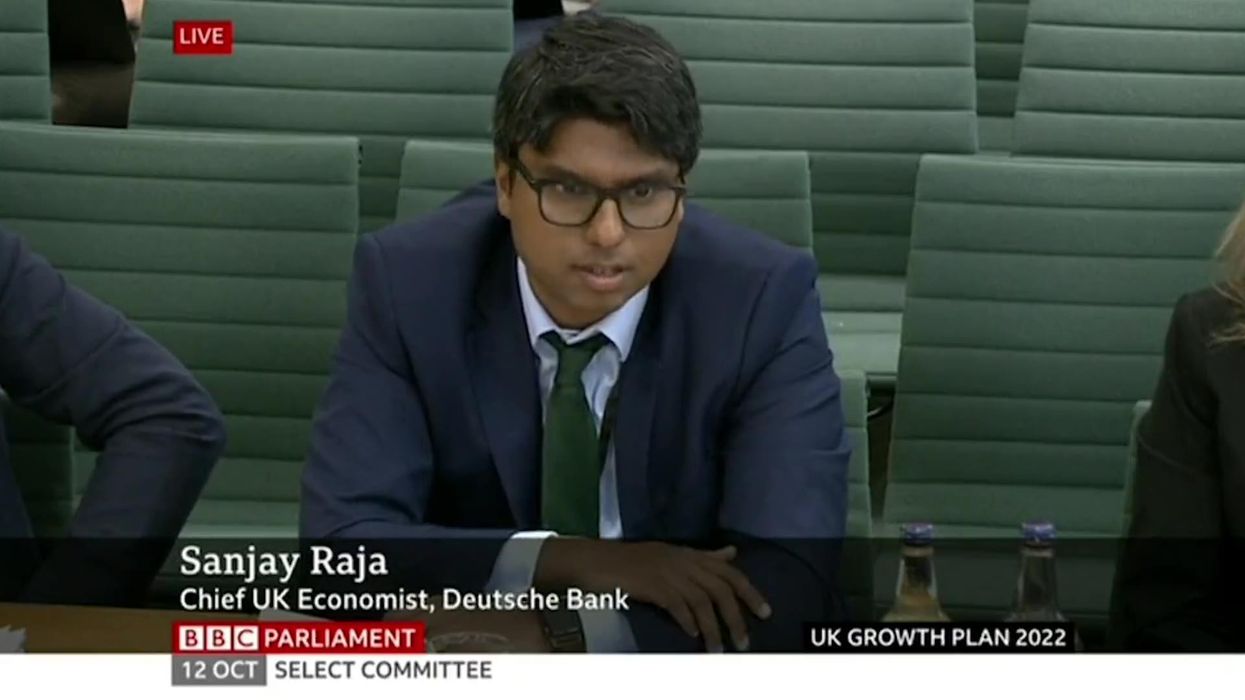It can be overwhelming when trying to stay on top of all the financial news at the moment with the UK going through a very rocky patch.
Now, Sanjay Raja, who is the chief UK economist at Deutsche Bank, has summarised why the country is in such a bad spot.
Raja appeared to give evidence to the Treasury Committee of cross-party MPs on Wednesday and spoke about the implications of Kwasi Kwarteng’s mini-budget and the effect of global issues.
He referenced the term “trade shock”, which is the effect of global changes being impacted by things outside of the UK’s control – one of which being the spooking of international markets and causing a fall in the pound.
Sign up for our free Indy100 weekly newsletter
“[It] has to do with what the governor of the Bank of England has been talking about for months, for quarters,” he said. “And that’s really coming down to the terms of trade shock that the UK uniquely faces.”
Raja agreed that Brexit has also had an impact, while stating that the UK’s “trade balance” has been unbalanced for some time. Trade balance is the difference between the value of goods being exported and the goods being imported to the country.
“If you look at the trade balance, look at where the trade balance is, it’s at a historic deficit,” he added, discussing the fact that the UK was paying more for imports than it was bringing in for exports.
“We haven’t seen this kind of trade deficit since 1955, since national account records began.”
Discussing the levels of borrowing needed, he went on to say: “And when you throw onto that, the current external financing needs that are extraordinary, the time going into September 23, the chancellor’s mini-budget, the ONS was talking about an 8.3 per cent current account deficit.”
Describing the imbalance as “one of the worst amongst developed and emerging market economies,” he added: “So the external financing needs of the UK are certainly a big function of what we’re seeing.
“And then you throw on [the mini budget], you’ve got a sidelined fiscal watchdog, you’ve got a lack of medium term fiscal plan and one of the largest unfunded tax cuts that we’ve seen since the 1970s. It was the straw that broke the camel’s back.
Have your say in our news democracy. Click the upvote icon at the top of the page to help raise this article through the indy100 rankings.














